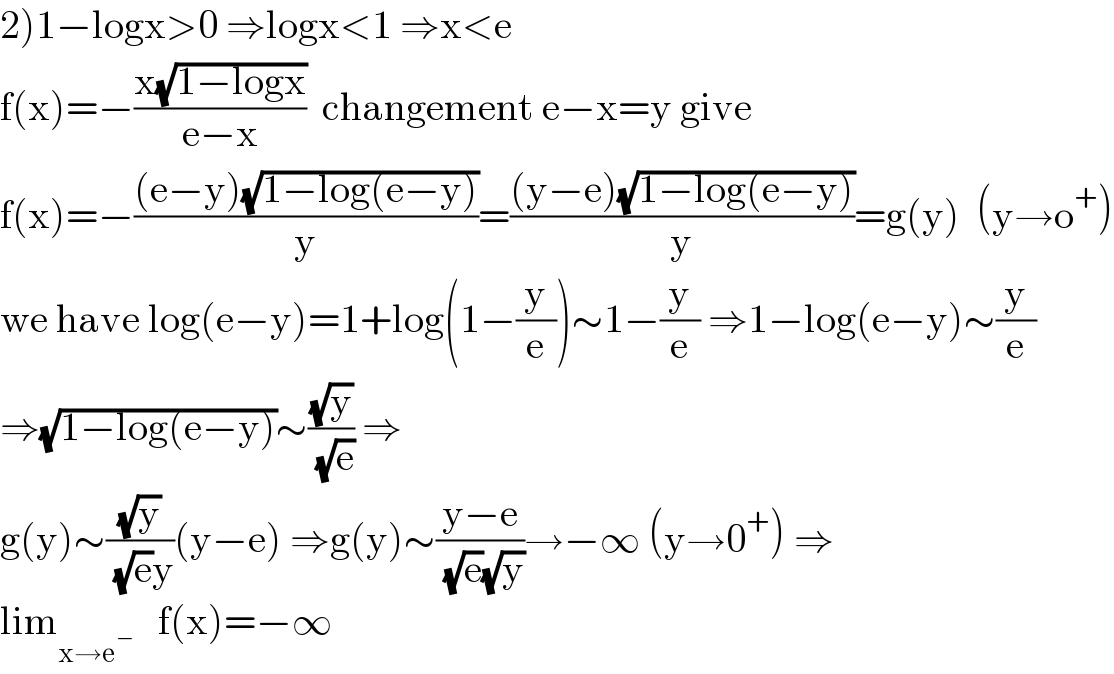
Question and Answers Forum
Previous in Relation and Functions Next in Relation and Functions
Question Number 144109 by henderson last updated on 21/Jun/21
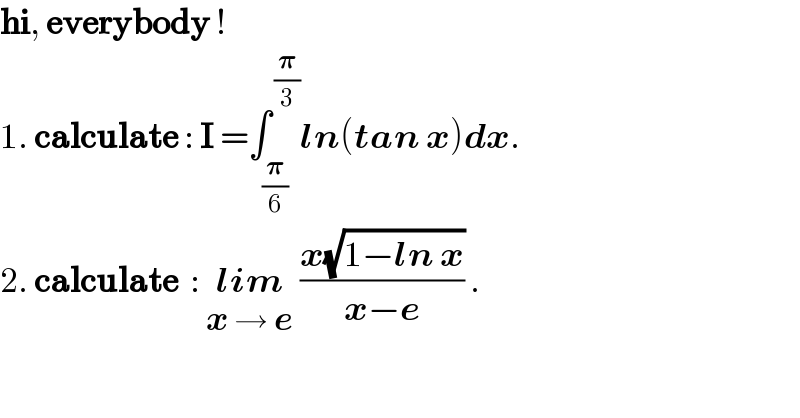
Commented by bobhans last updated on 22/Jun/21
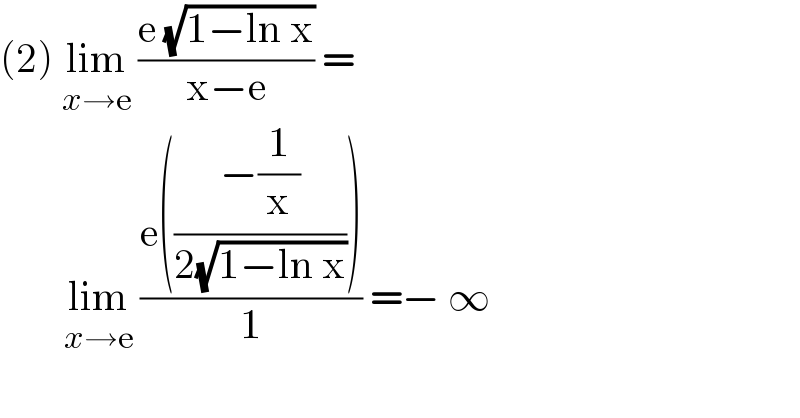
Answered by Olaf_Thorendsen last updated on 21/Jun/21
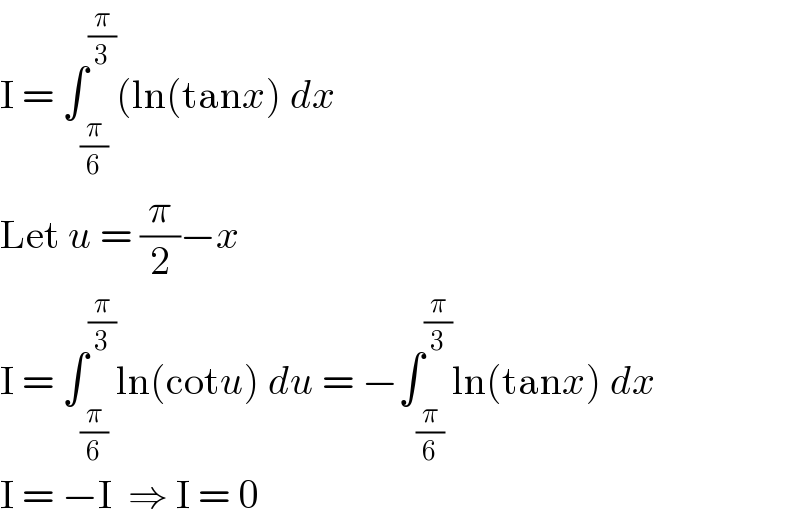
Answered by mathmax by abdo last updated on 21/Jun/21
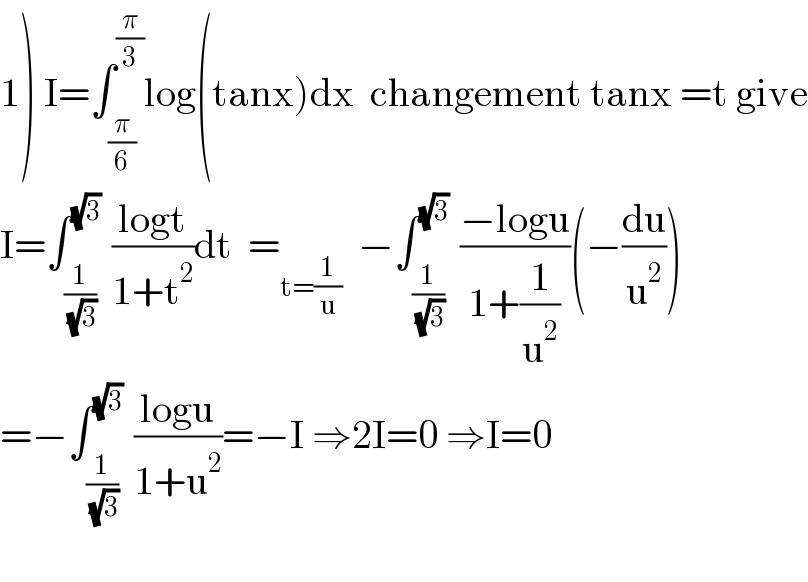
Answered by mathmax by abdo last updated on 21/Jun/21
